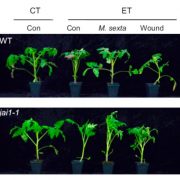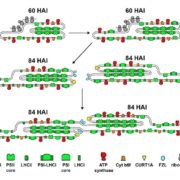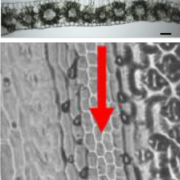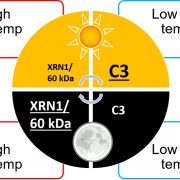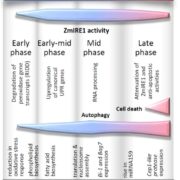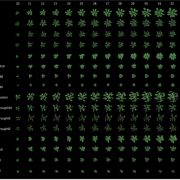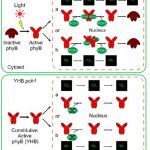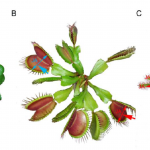Cold-adapted protein kinases and thylakoid remodeling impact energy distribution in an Antarctic psychrophile (Plant Phys)
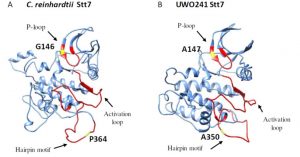 “Earth is a cold place with 80% of its biosphere permanently below 5°C,” begins this study of an Antarctic psychrophile (“cold-lover”). As Szyszka-Mroz et al. indicate, the permanently cold-adapted inhabitants of permanently frozen lakes are highly vulnerable to the effects of climate change, as well as providing interesting insights into how life occurs at near-freezing conditions. The obligate psychrophile Chlamydomonas sp. UWO241 was isolated from a frozen, salty (700 mM NaCl) Antarctic lake. Interestingly, although it lives in high salt and low light, it grows better at more moderate salt and light intensities. Contrary to their previous findings, they show here that this alga does indeed engage in state transitions for balancing between PSI and PSII, but that the mechanism is unusual. They also identify and characterize its cold-adapted Stt7 and Stl1 protein kinases. (Summary by Mary Williams) Plant Physiol. 10.1104/pp.19.00411
“Earth is a cold place with 80% of its biosphere permanently below 5°C,” begins this study of an Antarctic psychrophile (“cold-lover”). As Szyszka-Mroz et al. indicate, the permanently cold-adapted inhabitants of permanently frozen lakes are highly vulnerable to the effects of climate change, as well as providing interesting insights into how life occurs at near-freezing conditions. The obligate psychrophile Chlamydomonas sp. UWO241 was isolated from a frozen, salty (700 mM NaCl) Antarctic lake. Interestingly, although it lives in high salt and low light, it grows better at more moderate salt and light intensities. Contrary to their previous findings, they show here that this alga does indeed engage in state transitions for balancing between PSI and PSII, but that the mechanism is unusual. They also identify and characterize its cold-adapted Stt7 and Stl1 protein kinases. (Summary by Mary Williams) Plant Physiol. 10.1104/pp.19.00411


